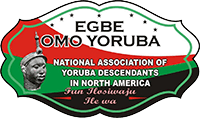Existential challenges
Upon attaining independence, a former colonial enclave, which had been brought together under inauspicious circumstances, whose conquerors had no visible commitment to its cohesion or unity, is faced with three fundamental existential challenges:
- How do we carve a national identity out of a motley crowd? This is the question of political structure and constitutional arrangements.
- How do we equip each individual with the necessary skills to make him or her a useful member of society? This is the question of education and human development.
- How do we organize the social means of production for the benefit of all? This is the question of the economy and production and equitable distribution of resources.
Had the entity in question come into being in a natural process of evolution and not through the imprimatur of an imperialist robbery, it might still face the three questions but perhaps with different answers to the first of the existential questions. These were the questions and issues that Chief Awolowo, as a responsible citizen, felt morally compelled to address and to offer workable and pragmatic answers. He did with remarkable thoughtfulness and uncommon passion.
Let us dismiss the false assumption that every political leader struggles for political power in order to benefit the people and make progress for the nation. There are quite a number of power seekers whose motive is selfish interest. Therefore, we must not get conned by a pretense to universal altruism on the part of leaders. In our own clime, too often we have been beaten and bruised not to understand this logic of egoistic power-seeking.
By the same token, we should not assume that every political leader seeks power for his or her own selfish motive. If this were the case, we would have no morally upright role models in politics. But we do. And though, we have been captivated by some ugly revelations in recent times about our immediate past as a nation, it is just as unfair to brush every political pot with the paint of corruption as it is to naively paint everyone with the beautiful color of saints.
Let us then make a justifiable assumption that a self-acclaimed progressive party is in quest of power to make progress its watchword and therefore to seek national progress on the issues of existential concern that constitute the core of a nation’s being and which must therefore move it forward to greater heights. By the same token, then, it makes sense to assume that such a progressive political party, once it secures power, would, like the proverbial bird, seek to flock with those of its kind, whether present or past, political birds which have ascended greater heights in the matter of progressive governance. After all, provided that we deal with similar entities albeit separated by a time lag that need to be taken into consideration, why would there be a need for reinventing the wheel of governance? If the assumptions turn out to be false, it is not unfair to challenge the claim of that party to the progressive label.
Therefore, my intention in what follows is to bring back to our collective memories, the feat once performed by a progressive political party in this country under conditions that were not too dissimilar from where we find ourselves today. Indeed, back in 1952, Nigeria was in a worse shape because she was under the yoke of an imperialist rule that couldn’t relate to the idea of progress for a colonial enclave. It was under such inauspicious condition of suspicion of every move that progressive nationalists made that Chief Awolowo and the Action Group, through sheer determination, made their lasting contributions to the progressive development of the Western Region.



